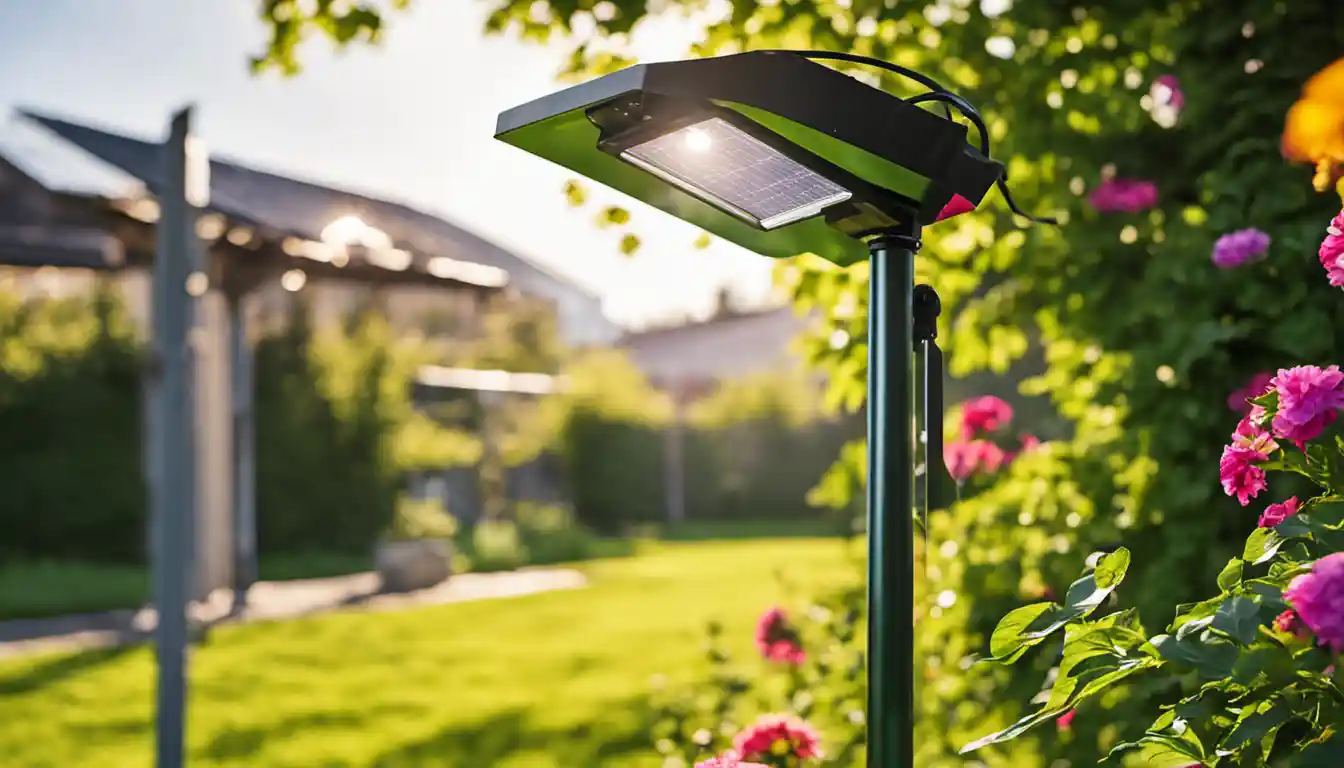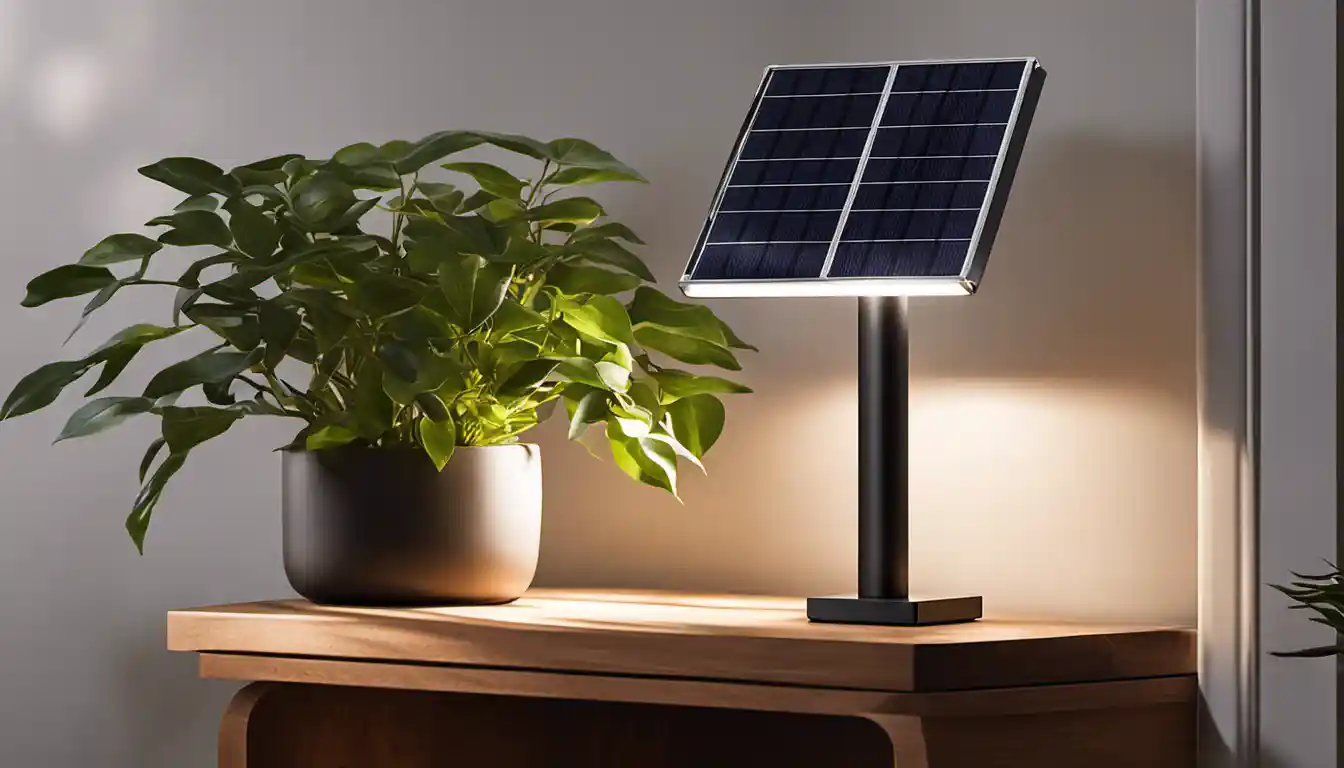Understanding solar lights and why they fail
To fix solar lights, it’s important first to clean the solar panel and replace the battery if necessary. If the light still doesn’t work, inspect the light sensor, bulb, and connections for damage or dirt. If you’re not able to identify the problem, it may be best to consult with a professional or consider replacing the unit.
Solar lights are deceptively simple – they are a compact unit of a solar panel, battery, photocell, and light. The intriguing dance of light and darkness begins as the solar panel absorbs sunlight during the day to charge the battery. As evening descends, the photocell or light sensor triggers the light to glow, illuminating your pathway, beautifully contouring your garden, or providing security in the dimness.
Yet, as in any grand dance, a misstep can cause a fall. Let’s look at common reasons why solar lights stop working:
Insufficient sunlight is like skipping meals for solar lights. If they are in shady areas, they won’t get the nutrition they need. Always place your solar lights where they can absorb maximum sunlight.
End of battery life – Nothing lasts forever, not even the batteries in your solar lights. When their power wanes, it’s not a lit-up night.
Faulty sensors can play spoilsport, too. They either won’t turn the lights off during the day, depleting the batteries, or won’t turn them on at night.
Dirty solar panels are like smudged glasses. The solar panels can’t ‘see’ the sunlight clearly. Make sure they are clean and properly positioned.
Water build-up in the panels – Yes, we can’t control the weather but we can protect our solar lights from heavy rain.
Too close to other light sources – Solar lights can get confused if another light source is near. They think it’s already daytime and refuse to turn on even in utter darkness!
You can read about it more in our in-depth article about why solar lights stop working.
Checking if your solar lights are operational

Switch ’em on – Make sure your solar lights are turned on! Some come with an “auto/off” button that controls the sensor.
Look for pull tabs on the battery – This is a protective measure during transportation to prevent the battery from discharging.
Conduct the “Light Test” – By covering the solar panel, you can trick the light into thinking it’s night time and see if it turns on.
Don’t forget to position your solar panel correctly so that it can get adequate exposure to sunlight.
You can even test with regular batteries, if your solar light model allows, just to rule out other problems.
See also: What to Do with Broken Solar Lights: Practical Solutions and Tips
Solar Light Maintenance
Your little comrades of light need care, too. Secret to a longer life of solar panel lights is regular cleaning. Wipe the solar panels with a damp cloth frequently to they can catch the sun effectively.
Over time, batteries diminish. Replace them periodically for a glow that doesn’t falter.
Place your solar lights wisely, away from other light sources and not under a shade. This maintains their circadian rhythm, so to speak, and keeps them healthy.
Rain? No problem! Just make sure your solar lights aren’t waterlogged. Learn more about how to protect solar lights from rain.
Finally, learn to recognize the signs of a faulty sensor. If your lights aren’t responding to changes in light, it’s probably time to replace the sensor.
See also: How to Stop Solar Lights From Blinking: Comprehensive Guide for Homeowners
A Specific Guide on Fixing Solar Lights on an Umbrella

Umbrella solar lights can add an enchanting glow to your outdoor dinners or late-night conversations. But what if they fail?
Troubleshooting umbrella solar lights is similar to basic solar lights. In addition, check if all the connections between the lights are secure.
The steps for replacing battery and cleaning umbrella solar lights don’t differ much from the general ones. Just take care of the wiring connections that go along the spokes of your umbrella.
If you live in an area with a mild climate, follow best practices of umbrella solar lights maintenance year-round to prolong their lifespan.
See also: How to Make Solar Lights Brighter: A Comprehensive Guide for Homeowners
Contacting the Retailer for Resolving Issues
Don’t hesitate to contact your retailer if these DIY tips on how to fix solar lights don’t work. They might offer replacements for defective parts, or even the entire unit under warranty.
Remember to provide them with complete information – when you bought the lights, their make and model, and the specific issues you’re facing.
See also: How to Replace Solar Light Batteries: A Step-by-Step Guide for Homeowners
Switching off and Recharging your Lights

Remember to switch off your lights and charge them for 72 hours a couple of times a year, especially if they are underperforming. This process effectively ‘resets’ your lights and can help restore them to full power. More on this topic can be found here [/solar-panel-lights].
Final tips and best practices
A stress on regular maintenance can’t be overstated – it keeps your solar lights glowing strong and long. Understanding how to fix solar lights, be it general lights or umbrella ones, is no rocket science!
Be proactive rather than reactive. Mitigate common issues before they become problems. Check for adequate sun exposure, replace depleted batteries, clean the panels regularly, and ensure the sensors work as they should and, voila, you’re good to go!
There you go, dear homeowner – a comprehensive guide on how to fix solar lights. Ready for a charming night of radiant light? Your garden certainly is!



